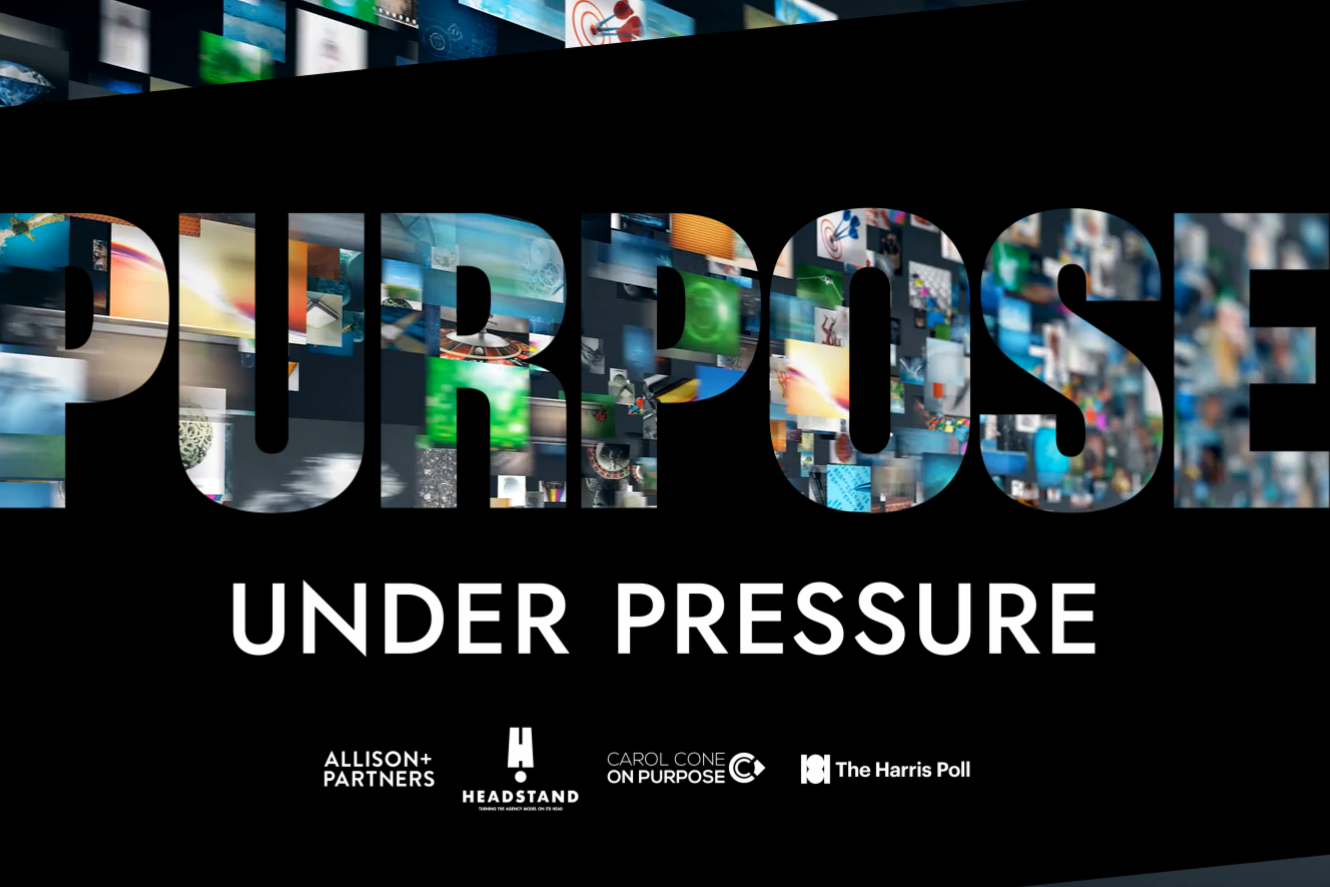Mature purpose work is also good business, according to study
Carol Cone, CEO of Carol Cone ON PURPOSE, unpacks some insights from her newest study, “Purpose Under Pressure”

While the idea that the most successful brands have a clearly defined purpose may seem obvious now, the concept was not always so widely understood.
Carol Cone, CEO of Carol Cone ON PURPOSE, began helping brands find their purpose before it was trendy. Growing up during the Vietnam War era and a rapidly growing civil rights movement, Cone experienced firsthand how the social justice movement evolved youth culture and changed brand allegiances, too.
Cone began seriously getting into this work in ’83, connecting brands like Rockport to the importance of walking as exercise, Reebok to human rights and Avon to breast cancer awareness. Along the way, she became a self-described research fanatic.
“It was really critical to do research, to begin to show the C-suite that this was not nice philanthropy, that this could be having an impact on the business,” Cone tells Ragan. “It could give a business, or a brand, more meaning. So you were buying into something, not just buying something.”
Cone recently released her 31st research study, “Purpose Under Pressure,” a collaboration with Allison + Partners, Headstand and The Harris Poll. She’ll talk about the results during a Ragan webinar on 8/31.
Ahead of that conversation, Cone unpacked some of the study’s findings.
Employees want more meaning from work in a post-COVID world
Among the study’s more striking findings, 84% of those surveyed said they will only work at purpose-driven companies or brands. For context, 84% also said they feel more empowered than in the past to use their work as a force for good. Eighty-six percent also believe that it’s more important than ever for their work to have meaning.
“It’s what they stand for with their meaning, what they stand for with their bottom line, how do they treat me as an employee?” Cone says. “Do they listen to me? Do they engage me? Do they allow me to bring my whole self to my work, so if I really love to volunteer I can do that within my company?”
Most of the C-suite believes purpose is crucial to business success
While most employees surveyed said they want more meaning, 92% of C-suite respondents said that they believe when their organizations lean into purpose more fully, it will be more successful.
“Ninety-two percent is great, because this has to be led by the C-suite,” says Cone. “You can’t push that up through the culture.”
This explains why multiple members of the Ragan community say that their employee resource groups are most effective at enacting change when they have an executive sponsor who can advocate for the group’s proposal and bring those ideas up the ladder.
Employees had different reads on the maturity of their organization’s purpose work
When the survey asked respondents to share whether they feel that their purpose efforts were mature and systematically embedded across the company, the response varied depending on who was answering: While a majority 68% of C-suite respondents, 62% of director-level respondents and 52% of VP/MDs agreed, just 43% of managers felt the same way.
Cone says that this discrepancy points to the fact that, though companies are finally understanding employees are the greatest asset at the center of the company, embedding that purpose among them is still not easy.
“You cannot turn it on and off like a light switch,” she says. “It needs to be constant. And to truly impact culture, it needs to be a lens of decision making. This helps you with social activism, which is a bear of a place for CEOs and companies today (that) can’t do everything. How do I use what I stand for? You need consistency.”
Check out Carol Cone’s full “Purpose Under Pressure” study, and register now for our panel at Ragan’s “Taking a Stand” webinar on 8/31!







